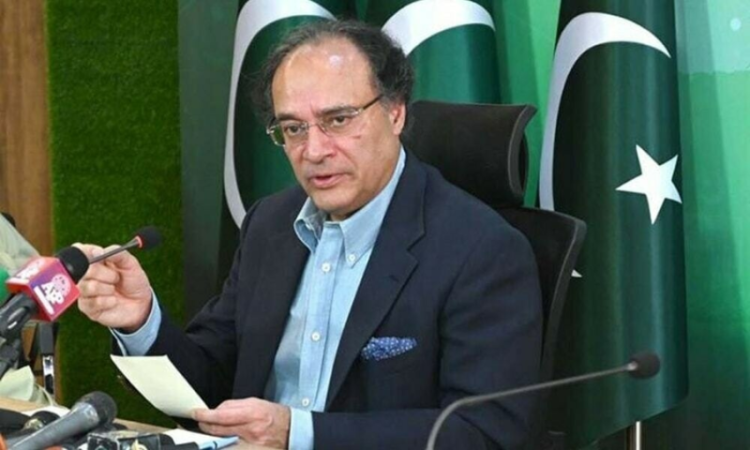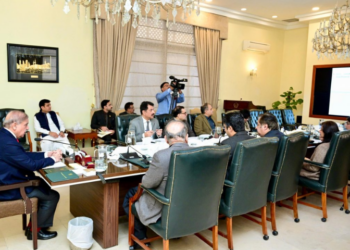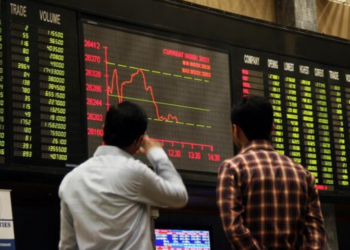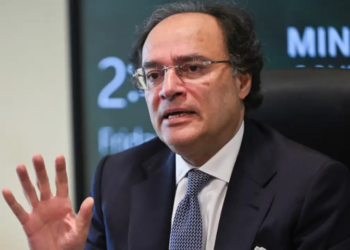ASHINGTON: Federal Finance Minister Muhammad Aurangzeb has outlined significant economic reforms and tax policies aimed at increasing transparency and sustainability in Pakistan’s economy.
Speaking at a press conference after concluding his visit to Washington, where he participated in the World Bank and International Monetary Fund (IMF) annual meetings from October 21 to 26, the Finance Minister said that his meetings with stakeholders in the United States remained positive, adding that the stakeholders appreciated the scaling down of inflation in Pakistan.
“All global rating agencies have upgraded Pakistan’s ratings which is an indication that the economy is going in the right direction. We have to take harsh decisions for the economy’s betterment,” said the finance minister.
The Finance Minister held a series of meetings with the leaders from several international finance institutions and authorities including rating agencies, multinational banks, WB, IMF and the Asian Development Bank (ADB).
Aurangzeb said the US business communities were willing to invest in Pakistan as all rating agencies stated the economy was moving in the right direction. He also apprised media that the World Bank would give Pakistan a grant instead of loan. Whereas, he said, the government would try not to take a loan from the IMF anymore.
He expressed the hope that the current IMF programme would be the last.
“Our foreign reserves have increased to $11 billion. We have reduced reliance on foreign loans. All banks are ready to cooperate with the government,” he concluded.
Aurangzeb emphasised that no one will be harassed for taxes, with data-driven assessments now central to tax collection efforts.
He also announced new restrictions for non-filers, stating they will be unable to open bank accounts or purchase property, pending legislative approval. “We need a legal cover for non-filers, we are erasing the term non-filer’ itself. We will raise the tax-to-GDP ratio from nine to 13 percent,” reaffirmed the finance minister.
Aurangzeb highlighted upcoming reforms in the Federal Board of Revenue (FBR), aimed at boosting transparency and fostering sustainable development.
“We are taking difficult decisions to improve the economy. Our focus includes reducing imports, increasing exports in sectors like IT and agriculture, and transitioning government-owned enterprises to private management where feasible,” he said.









